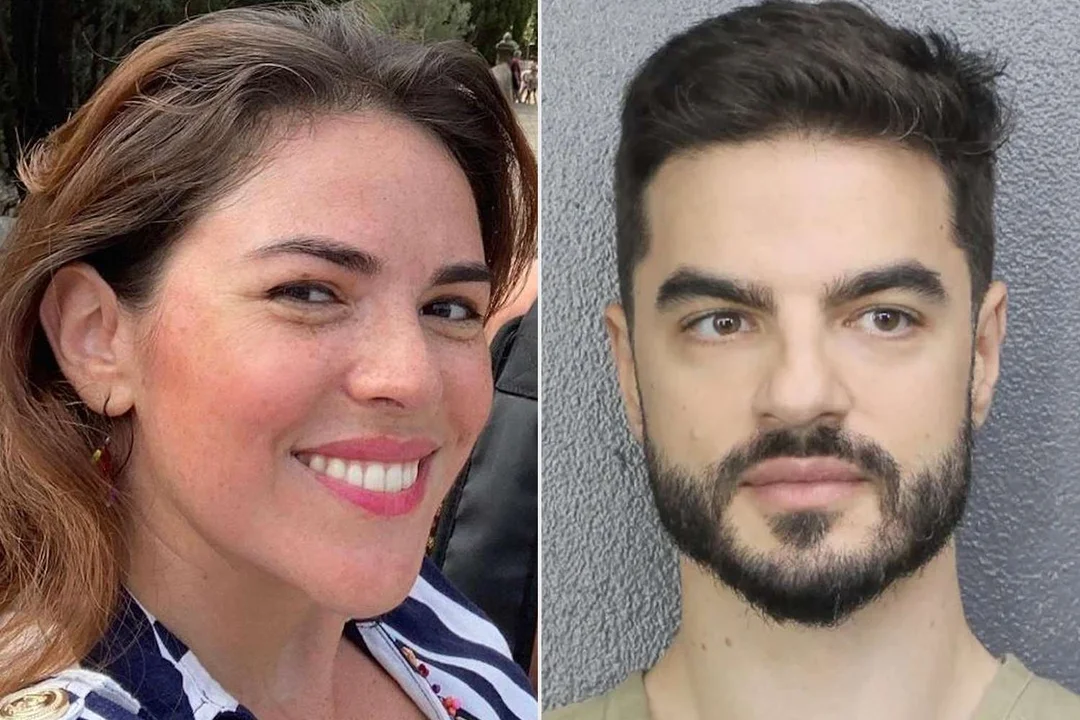
Did Justice Prevail or Slip Away? The Untold Twist in a Cross-Border Crime Saga
In a case that has captivated international headlines, the man accused of kidnapping and killing his estranged wife in Spain has died by apparent suicide, leaving behind a trail of unanswered questions and lingering grief. This shocking development not only closes one chapter of a high-profile mystery but also raises profound concerns about accountability in crimes that span continents.
David Knezevich, a 37-year-old Florida businessman, was awaiting trial at the Federal Detention Center in Miami when he was found unresponsive in his cell on Monday. His defense attorney confirmed the cause as suicide, marking a sudden and tragic end to a legal battle that began with the disappearance of his wife, Ana Knezevich, in February 2024. Prosecutors had built a compelling case against him, alleging that Knezevich traveled to Spain, disabled security cameras at Ana's Madrid apartment, and fled with a suitcase—potentially containing her body. The couple, entangled in a bitter divorce over millions in properties, had been married for 13 years, with Ana hoping to start a non-profit for abused women.
Key evidence painted a damning picture: Surveillance footage showed a man in a motorcycle helmet—believed to be Knezevich—entering Ana's building and later wheeling out a suitcase. Authorities traced his movements from Miami to Turkey, then Serbia, and back to Madrid on the day of her disappearance. His rental car, driven over 4,800 miles in weeks, suggested a calculated cover-up. "We have strong evidence linking him to the scene," prosecutors stated, emphasizing the circumstantial yet robust nature of their investigation. Despite this, Ana's body remains missing, complicating an already complex international case involving the FBI, Spanish police, and even searches in Italian woods.
The reactions from those involved underscore the emotional turmoil. Knezevich's defense team, led by attorney Jayne Weintraub, expressed devastation: "We sincerely hope that an appropriate and prompt investigation will be conducted." Meanwhile, Ana's family, through their attorney Adam Ingber, shared a mix of relief and frustration. "The suicide of Ana's murderer closes a painful chapter, but it is a cruel final insult that we may never recover her remains or know the full extent of the betrayal," they said. Her brother, Felipe Henao, appeared on NewsNation, pleading for any information that could help locate her, highlighting the family's ongoing quest for closure.
This turn of events invites deeper analysis. While Knezevich's death spares the courts a lengthy trial, it deprives Ana's loved ones of the justice they sought and leaves critical questions unanswered. Experts note that such cases often hinge on circumstantial evidence, making them vulnerable to unresolved endings. The incident also spotlights issues of domestic violence, as Ana had moved to Spain amid their contentious split, aiming to support other victims. With charges likely to be dismissed, the focus shifts to broader systemic flaws in handling cross-border crimes and the psychological toll on suspects in custody.
In summary, this case serves as a stark reminder of the human cost behind sensational headlines. The loss of both lives underscores the need for vigilance in domestic abuse situations and thorough investigations. What do you think—does this outcome bring justice, or merely more mystery? We invite readers to share their thoughts in the comments below and help keep the conversation going on social media.